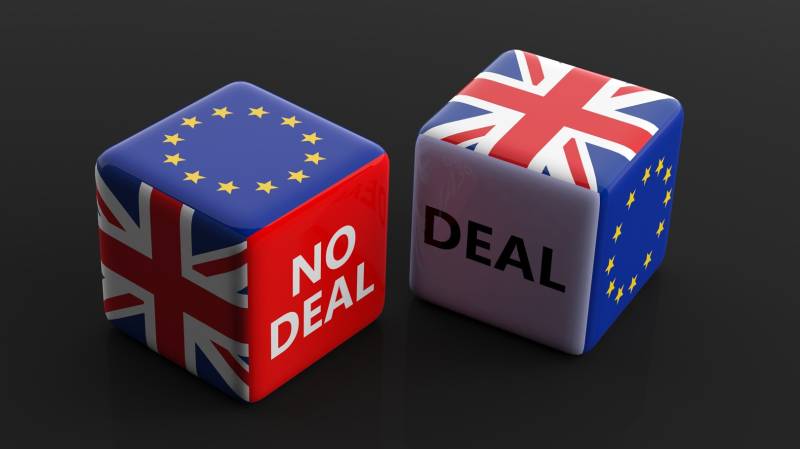Decision time nears as Brexit talks enter endgame

Stay tuned with 24 News HD Android App

Post-Brexit trade talks between the EU and UK neared a decisive point on Monday, with the outcome highly uncertain and the threat of a wrenching "no-deal" mounting by the hour.
Brussels' chief negotiator Michel Barnier briefed ambassadors from EU member states at a pre-dawn crisis meeting, warning that divisions were still stark after talks with his UK counterpart David Frost broke up overnight.
Barnier and Frost will resume face-to-face talks later on Monday before reporting back to their respective bosses, EU chief Ursula von der Leyen and UK Prime Minister Boris Johnson.
The two leaders will speak by phone later in the day, a call that a senior diplomat said would assess where matters stood and was not yet the make-or-break moment.
Ireland's Prime Minister Micheal Martin warned the chances for a deal were only "50-50", while sources close to the talks said Sunday's horsetrading was slow and expectations were low.
Barnier told the EU envoys that negotiations were still blocked over fishing rights, rules for fair trade and an enforcement mechanism, the thorniest problems since talks began eight months ago.
But talks will continue despite the tight timetable for the European Parliament to ratify an accord before the UK leaves the single market on December 31, with one source stressing that "substance will take precedence over the calendar."
Ratcheting up the drama, a top UK minister was sent to Brussels for separate EU talks to discuss the two sides' existing divorce treaty which Britain has threatened to redraw.
'Last useful days'
Britain left the EU on January 31 but will exit the EU's single market at year's end, following a transition period originally intended to give time to shape future ties. The goal of the negotiations is to establish a trade relationship with zero tariffs and zero quotas in hopes of avoiding major disruptions come January 1.
All eyes are on an EU summit on Thursday, when the outline of any deal -- or an admission of the failure to find one -- will be put to the bloc's 27 leaders.
A source close to the talks said the situation was "very difficult" and that negotiations were in their "last useful days".
"We are on a very narrow path and it is impossible to predict the outcome," the source said.
Several sources said the hardest issue was how to guarantee fair trade in future ties and establish a quick penalty mechanism if either side were to backtrack on, for example, environmental or health standards.
Britain is very reluctant to accept a broad and binding arrangement, seeing it as an infringement on its new-found sovereignty after 47 years of EU membership.
"In essence, if the talks fail now, the two sides didn't manage to agree what constitutes foul play and what to do about it," an EU diplomat said.
'Common sense' plea
Johnson has insisted Britain will "prosper mightily" whatever the outcome of the talks, but he will face severe political turbulence if he cannot seal a deal.
Without a deal, tariffs would be levied on the huge volumes of trade passing between the UK and the European continent, through the Channel tunnel and by ship, starting on January 1.
Travellers between both sides would also be affected with further passport delays and red tape for foreign residents and businesses.
Ireland's Martin insisted that "a no-deal would be very damaging to all concerned, to the United Kingdom, to the Irish economy and indeed to economies of member states as well".
"It's very, very important that common sense prevails here and that a deal is done," he said, pointing to Thursday's summit as a critical moment.
France meanwhile is seen as the most reluctant to compromise among the Europeans after repeated threats of a veto if a deal does not protect French interests.
In an unexpected twist, UK minister Micheal Gove travelled to Brussels to discuss the 10-month old Brexit divorce deal, on the same day as British parliament was to consider a bill that would violate it.
European Parliament has said it will reject any trade deal if Britain delivers on its threat to undo the divorce agreement that guarantees an open border between UK-ruled Northern Ireland and the EU-member Republic of Ireland.
